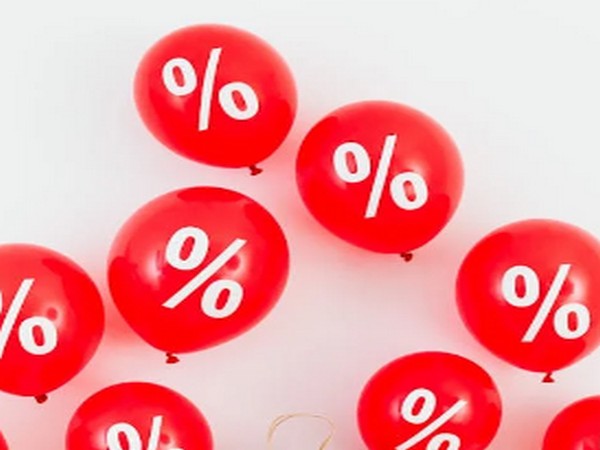Where are US interest rates headed?
Jul 15, 2025
Washington [US], July 15: Despite pressure from the White House, the US Federal Reserve (Fed) still leaves open the possibility of reducing its key interest rate, while there are concerns that the country's key interest rate could increase.
It is expected that today (July 14, US time), the latest US economic data will be announced so that investors can more clearly assess the impact of President Donald Trump's trade policies.
Amid pressure, the Fed is divided
The US policy rate is currently at 4.25 - 4.50% since it temporarily stopped cutting in January due to concerns about the impact of President Trump's policies on the US economy.
Most Fed policymakers are reluctant to cut interest rates anytime soon. According to Reuters, "most participants" at the recent Fed meeting predicted that a rate cut would be appropriate later this year, as the impact of the reciprocal tax policy on the economy so far has been "temporary or modest."
However, there is clearly a division among the 19 members of the Federal Open Market Committee (FOMC), understood as the Fed's policy-making council, on the policy rate. Specifically, 9 out of 19 members proposed that the policy rate could be reduced by 0.5 percentage points by the end of the year, 2 members proposed a reduction of 0.25 percentage points, and some members said that the interest rate should not be reduced immediately.
Meanwhile, President Trump has been heavily criticizing Fed Chairman Jerome Powell for not lowering interest rates in recent months. The White House owner called for Mr. Powell to resign and said that his opponent did not cut interest rates only because of a "political game".
Many unknowns
However, the Fed Chairman affirmed that inflation is still a big challenge for the US economy, so it is not possible to reduce the operating interest rate because of concerns about high consumer prices. In response, the White House cited economic data in recent months that did not increase much to argue that the tax policy did not cause the consumer price index to increase. However, policymakers said that because retailers have imported goods to stock up and most of the tax rates have been suspended in the past, the real impact on goods on the market has not been seen.
Meanwhile, Bloomberg forecast on July 12 that after months of low inflation, US consumers may have begun to experience faster price increases in June as companies began to pass on higher costs of imported goods related to tariffs.
The "core" consumer price index, which includes prices of goods and services but excludes food and energy, rose 0.3% in June, the highest in five months, according to a Bloomberg survey of economists. The core rose just 0.1% in May. On a yearly basis, it rose 2.9%, the most since January. The "core" price index has recently been seen as a more appropriate measure of inflation because fluctuations in food and energy costs do not fully reflect the true nature of the change. Economists predict that the impact on inflation will become more evident when the reciprocal tax is officially implemented and inventories gradually decrease.
In addition, JPMorgan Financial Group CEO Jamie Dimon recently warned that the reverse operating interest rate could increase this year. JPMorgan in general and Mr. Dimon in particular are people with great influence on the US financial market .
He said his view of the possibility of further rate hikes was "higher than anyone else's." "The market is pricing in a 20% chance of a rate hike. But I think there's a 40% to 50% chance," Dimon said at an event hosted by the Irish Foreign Ministry. He explained his comments by pointing to price pressures, tariffs, the US government's immigration policies and budget deficits as being inflationary. He added that the restructuring of global trade and global demographics were also "inflationary." He warned that there was complacency in financial markets and that many people were being insensitive.
Source: Thanh Nien Newspaper








